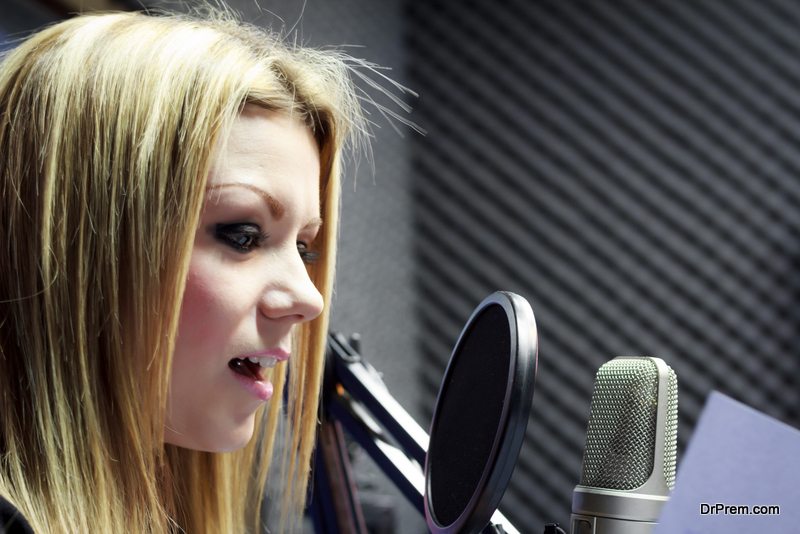If you are in a job that involves a lot of speaking, it is generally a good idea to work on how you sound. You know you have a pleasant voice, but when you record and listen to it, it doesn’t sound like your voice at all. And if it is not a good sound, it can be really off-putting, to say the least. Poor sound quality can depreciate the quality of your content but change this is not as difficult. You don’t have to buy expensive equipment or change the way you speak. Peruse the below mention tips to create great sounding audio that keeps your audience hooked and you satisfied.
Find a quiet room with a good amount of space

Give a thought to the environment you use to record. Listen to your recordings and see what else you hear other than your voice. Do you hear a low whirring of the room or computer fan? How about mouse clicks when you scroll through the script? Page turns? Animal Sounds?
Use a headphone to monitor your recording. Eliminate all extra noises as much as possible. This will give you a clean recording which will be easier to handle later on. Also, think about the acoustics of the place. Keep away from walls, desk, and other flat surfaces to avoid early reflection. Avoid reverberant spaces. Reverb is hard to isolate from a recording once added.
Stand and speak
A lot of professional speakers and singers stand when delivering to have better air support. This will also boost your confidence, as you feel more energetic. Also, any early reflections by a desk will be avoided. You can hold the script or use a stand for it. It is a good idea to cover the stand behind the script with a carpet though, to avert early reflections.
Be your own judge

Make a test recording of your content and compare it with content you enjoy. Take notes on what you can improve upon. Does your voice become lower as you approach the end of a phrase? Is there too many mouth noises in your recording? Is there a better way you can pronounce a certain word?
Use indirect mic placement
When recording, if you blow into the mic it sounds like this giant gust of wind that is downright unattractive. Especially popping, words that start with “P” and “B” create these bursts of air. To counter this, hold the mic away from the direct line of the escape of air. This will prevent the air from hitting the diaphragm, considerably improving your audio quality. This will make your voice sound a lot more natural. Experiment with different positions until you find one that you are satisfied with.
Record a high-resolution audio file

To counter compression artifact compounding, create your initial recording with a high-quality WAV file. But make sure you don’t go over 24 bit, 48 kHz when it comes to resolution. This will ensure you start with the best possible source material even if your recording undergoes compression for distribution.
Vowels, not consonants
Vowels show off your voice, not consonants. While speaking, shaping your vowels will permit you to add more emotion to your voice. Let the consonants take a backseat. Besides, highlighting most consonants produce hisses and annoying pops. Focus on your vowel sounds.
Speak to the audience

Imagining the voice recording session as a live session will motivate you to impart energy and confidence to your voice. Don’t think about being in the small vocal booth, think of someone or an audience, listening to every word that comes out of your mouth and vitality and feeling will automatically make your recording better.
Be well rested
The importance of being well rested cannot be stressed enough. A tired person will create a tired voice and you risk blow-out, strain and an overall poor product. Whenever you have a plan to record, make sure you are well rested and in the best shape. Being at your best physically will permit your voice to come out well.
Conclusion
These tips have been distilled from experiences of professional speakers and singers. If these have helped them, they can help you. Voice recording is an art and if you follow these tips and practice more, it won’t be long before your vocals sound more natural and professional.


